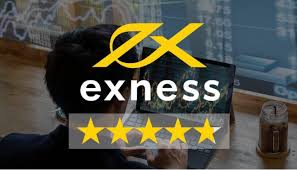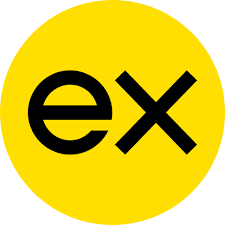Understanding the Exness Regulated Status and Its Implications

Exness Regulated Status: A Comprehensive Overview
In the realm of online trading, the regulatory status of a broker plays a pivotal role in determining the safety and reliability of trading activities. Exness, a prominent player in the Forex brokerage market, has garnered significant attention for its regulatory standing. This article delves into the Exness regulated status, exploring why it matters to traders, and how it impacts their trading experience. For a detailed view of Exness’s legal status in Bangladesh, you can check out this resource: Exness Regulated Status https://trading-bd.com/en/exness-legal-in-bangladesh/.
What is Broker Regulation?
Broker regulation refers to the oversight that financial regulatory authorities exert over brokerage firms to ensure they operate fairly, transparently, and in compliance with legal standards. These regulations are vital in protecting investors from fraudulent practices and ensuring the integrity of the financial markets. Regulatory bodies, such as the Financial Conduct Authority (FCA) in the UK or the Cyprus Securities and Exchange Commission (CySEC), establish rules that brokers must follow, including capital requirements, reporting obligations, and the maintenance of segregated client accounts.
The Regulatory Framework for Exness
Exness is registered and regulated under several financial authorities worldwide, which enhances its credibility among traders. Notably, Exness operates under the jurisdiction of the FCA and has both CySEC and Financial Services Authority (FSA) licenses. Each of these regulatory bodies has stringent requirements concerning operational practices, client funds protection, and transparency.
1. FCA (Financial Conduct Authority)

The FCA is one of the most respected regulatory bodies in the financial world. Brokers regulated by the FCA must adhere to strict capital requirements and provide clients with adequate protection. This includes maintaining a minimum level of financial reserves and ensuring that client funds are kept separate from the broker’s own operational funds. Furthermore, clients of FCA-regulated brokers are protected under the Financial Services Compensation Scheme (FSCS), which means they can receive compensation up to a certain limit if the broker becomes insolvent.
2. CySEC (Cyprus Securities and Exchange Commission)
CySEC is another reputable regulatory authority that oversees brokers within the European Union. Brokers operating under CySEC regulations must comply with the Markets in Financial Instruments Directive (MiFID II), which promotes fair trading practices and offers investor protections. Exness’s compliance with CySEC regulations means that it provides significant security for European traders and adheres to the guidelines set forth by the European Union.
3. FSA (Financial Services Authority)
The FSA regulates financial services in Seychelles and provides a regulatory framework for brokers operating in this jurisdiction. For traders, this means they benefit from a relatively flexible regulatory environment, but it’s essential to conduct due diligence concerning the risks involved. Exness’s FSA license shows its commitment to adhering to international standards while also providing services to clients outside Europe.
Why is Regulatory Status Important for Traders?
The regulatory status of a broker has several implications for traders, including:

- Investor Protection: Regulation ensures that brokers follow practices that protect client funds and promote ethical trading activities.
- Transparency: Regulated brokers are obligated to report on their financial practices regularly, ensuring they operate in a transparent manner.
- Market Integrity: Regulatory oversight helps maintain order and integrity within the financial markets, boosting investor confidence.
- Dispute Resolution: Most regulatory bodies provide mechanisms for resolving disputes between traders and brokers, further enhancing trader safety.
Risks of Trading with Unregulated Brokers
While it may be tempting to trade with unregulated brokers due to their enticing offers and lower spreads, this comes with significant risks. Unregulated brokers might not adhere to established financial practices, potentially putting traders’ funds at risk. There is no assurance of fund protection, and if an unregulated broker engages in fraudulent activities, traders have limited recourse to recover their investments.
Exness in the Global Trading Landscape
Exness has positioned itself as a global leader in the Forex brokerage industry thanks to its regulated status and strong reputation. With a mission to provide a seamless trading experience, Exness offers a range of trading accounts, competitive spreads, and a user-friendly platform. By being regulated in multiple jurisdictions, Exness continues to attract traders worldwide who seek a trustworthy and compliant trading environment.
Conclusion
Understanding the Exness regulated status is crucial for any trader looking to invest in the financial markets. Being regulated by respected authorities not only ensures that Exness operates with integrity but also provides necessary protections for its clients. With the combination of their commitment to transparency, investor protection, and compliance, Exness stands out as a reliable choice for both new and experienced traders alike. When choosing a broker, always prioritize regulatory status to ensure safety and peace of mind in your trading endeavors.
